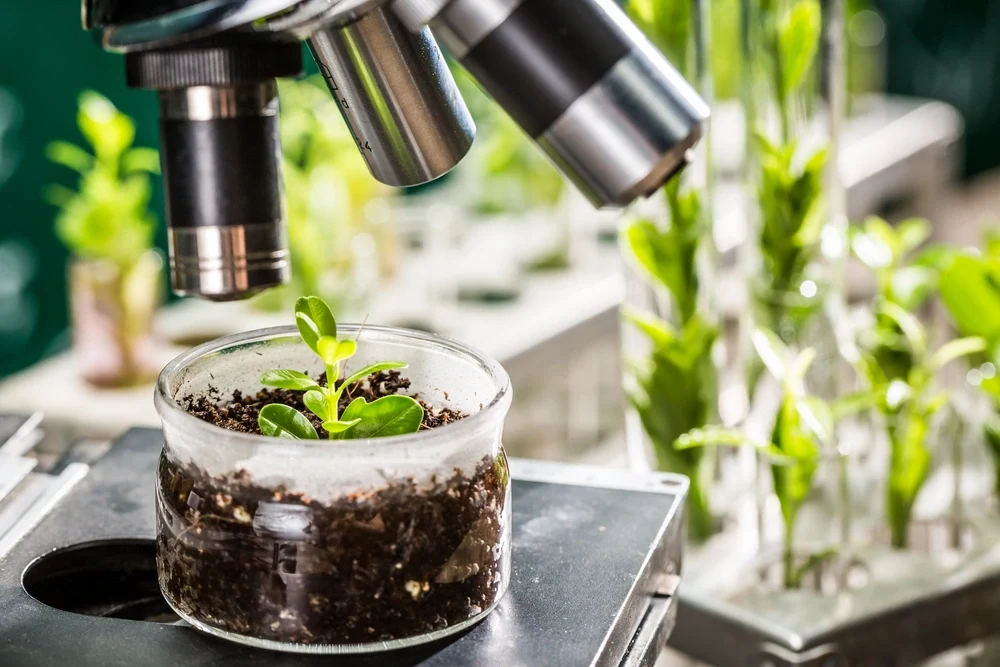If you’re wondering what you can do with a biochemistry degree, you have many options from teaching and research to medicine.
If you are already pursuing a biochemistry degree, you likely have a bright future ahead of you. You can either pursue a career in scientific research or use your degree as foundation for a career in medicine. Biochemistry graduates can also pursue teaching as a career option either as a university lecturer or secondary school teacher.
When you’ve finished your degree, you could choose to continue your education, apply for a chemistry graduate scheme or start your career. Many entry-level positions both in the private and public sectors are open for biochemistry graduates.
In this post:
What Is the Study of Biochemistry?
As the name implies, biochemistry is the combination of biology and chemistry, so it’s a sub-discipline of both biology and chemistry. It deals with the chemical processes that are related to biological organisms. These chemical processes are typically part of metabolism and synthesis of biological materials like proteins.
Biochemistry is further subdivided into three fields of specialised studies:
- Structural biology – this focuses on complex molecular structures and how biological macromolecules like proteins and nucleic acids behave under certain conditions.
- Enzymology – this is similar to structural biology but the main focus is the way enzymes work in terms of structure and function.
- Metabolism – the study of various chemical reactions that occur in a biological organism to sustain life. Metabolism is subdivided into catabolism, or the breakdown of biological compounds and other chemicals, and anabolism, or the synthesis of biological chemicals.
In the last few decades of the twentieth century, biochemistry made some great breakthroughs in understanding the chemical basis of life. These discoveries led to the development of more effective medicines and treatments for a wide range of diseases. Some discoveries improved agriculture and food production.
Biochemists have achieved great milestones that have forever changed our understanding of life. Among the greatest discoveries from the 1950s to 2000 were the alpha helix structure of protein, the double helix structure of the DNA, the protonmotive force in energy utilisation of cell, covalent modifications of enzymes, and ribosomes.

Biochemists have also developed various experimental methodologies that are now standard for a wide range of laboratory tests. Aside from diagnosing diseases, these experimental methodologies have also provided new tools for forensic science.
Do You Need Organic Chemistry for Biochemistry?
Organic chemistry is a foundation of biochemistry. It is one of the major and prerequisite subjects that a biochemistry student must take, and is definitely needed to understand biochemistry.

Organic chemistry is the scientific study of compounds that contain carbon. The main focus of organic chemistry is hydrocarbons, but other compounds with carbons are also studied.
Organic chemistry used to focus on compounds produced by living organisms, but it now also includes the study of synthetic materials derived from organic compounds, such as plastics. It has a wide range of applications in pharmaceuticals, petrochemical production, food processing, manufacturing paint, etc.
Organic chemistry deals with simpler chemical compounds that have a biological origin but aren’t necessarily active in biological organisms. Petroleum or fossil fuel, for instance, are ancient remnants of organisms but they are toxic to living organisms. Compounds studied in biochemistry are more complex and active in biological systems.
Is Biochemistry a Good Career?
If you have a degree in biochemistry, you’re highly employable in many industries because of your high level of specific skills, and there’s a range of possible careers for biochemistry graduates.
Holders of a biochemistry degree might pursue a career in chemistry or research, teaching, or applied sciences in various industries like pharmaceuticals.
You could also pursue advanced education in medicine or physical sciences. Scholarship and research grants might also be available to those who are academically qualified.
As a career choice, a biochemist provides important services in terms of the following:
- Coming up with ideas and new experimental methods in understanding how life works
- Providing conceptual and empirical basis for understanding health and diseases
- Contributing in the development and improvement of cutting edge biotechnology
Which University Is Best for Biochemistry?
You can determine which university is best for any subject based on quantifiable scoring criteria, such as:
- Teaching – this primarily refers to the level of competence or qualifications of the faculty members. It also refers to the learning environment and facilities like laboratories.
- Research – aside from teaching students, a university must also contribute to the totality of human knowledge. A good university produces original research papers that have international significance.
- Citations – the credibility of a biochemistry department can be gauged by the authoritativeness of its research. If you find a lot of citations to a university’s research, it probably means that the university is well-respected and recognised.
These are some of the best universities in the world for biochemistry and life sciences, based primarily on the above criteria:
- University of Cambridge – Cambridge has the highest rank for chemistry in the UK, and is third place in the world. It also comes on top for biological sciences. It has a great bachelor’s biochemistry program as well as post-graduate degree programs, and a research department dedicated to biochemistry. The most famous alumnus of this university is Charles Darwin.
- University of Oxford – one of the oldest and most prestigious universities in the world, Oxford has many specialised research departments both in the life sciences and clinical sciences. It has a faculty of world-renowned academics like the famous evolutionary biologist, Richard Dawkins.
- Stanford University – Stanford, in California, is renowned for science and innovation. It attracts some of the most brilliant minds in the world. Its department of biology is a leading institution in the fields of biochemistry, biophysics, computational biology, and conservation biology. Many of its alumni have won prestigious awards such as the Nobel Prize.
Of course, you’ll also need to consider whether the university is right for you personally.
The question of “what can you do with a biochemistry degree?” is easy to answer if you have a passion for biochemistry. The opportunities are many, varied, and often well-paid, and biochemistry graduates are amongst the most sought-after professionals, starting from graduate level.
Find out more about chemistry education in our chemistry education resources hub.












